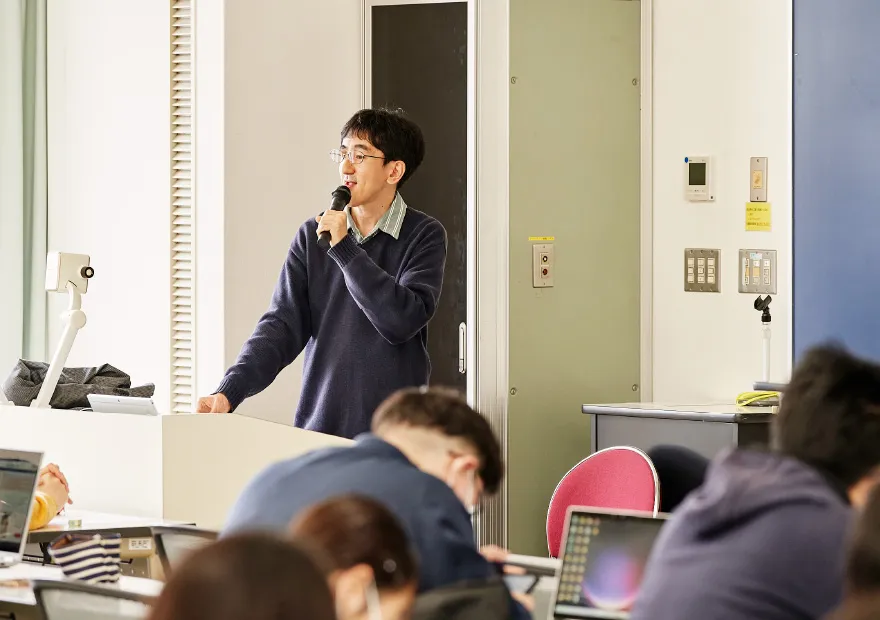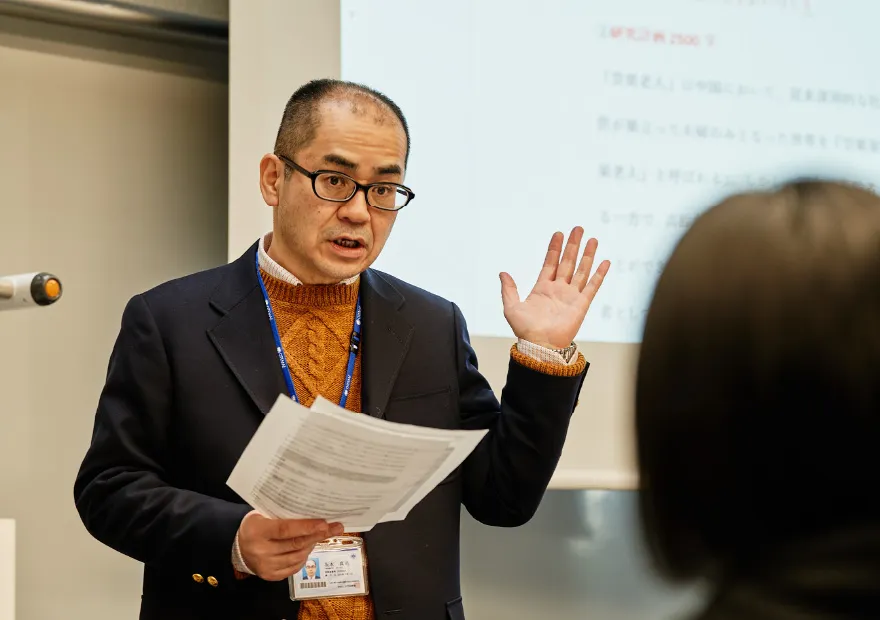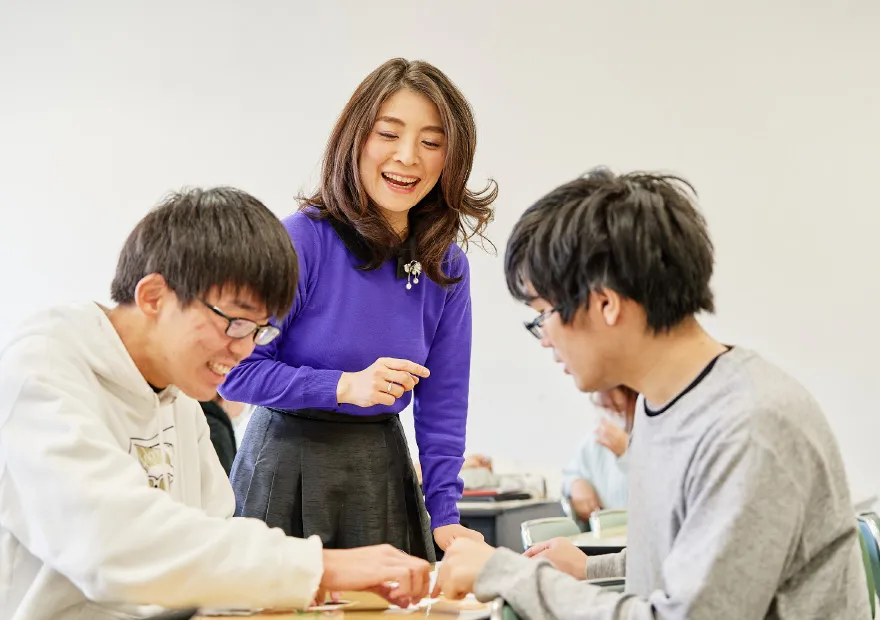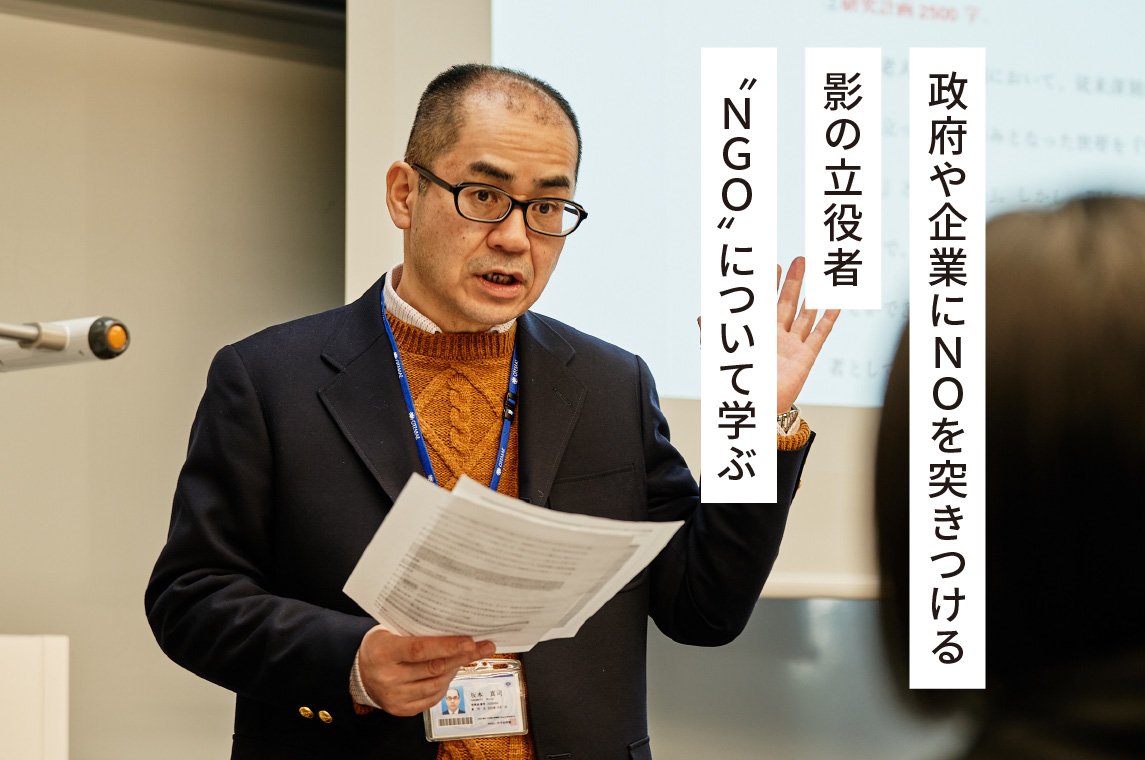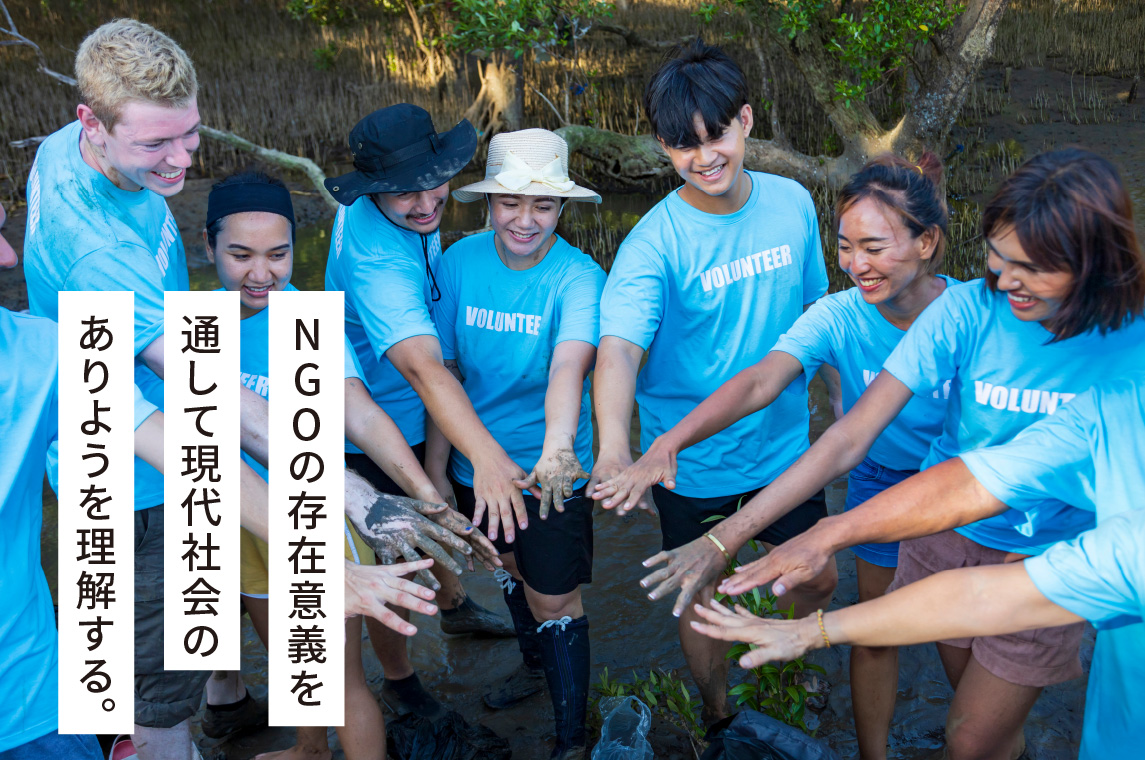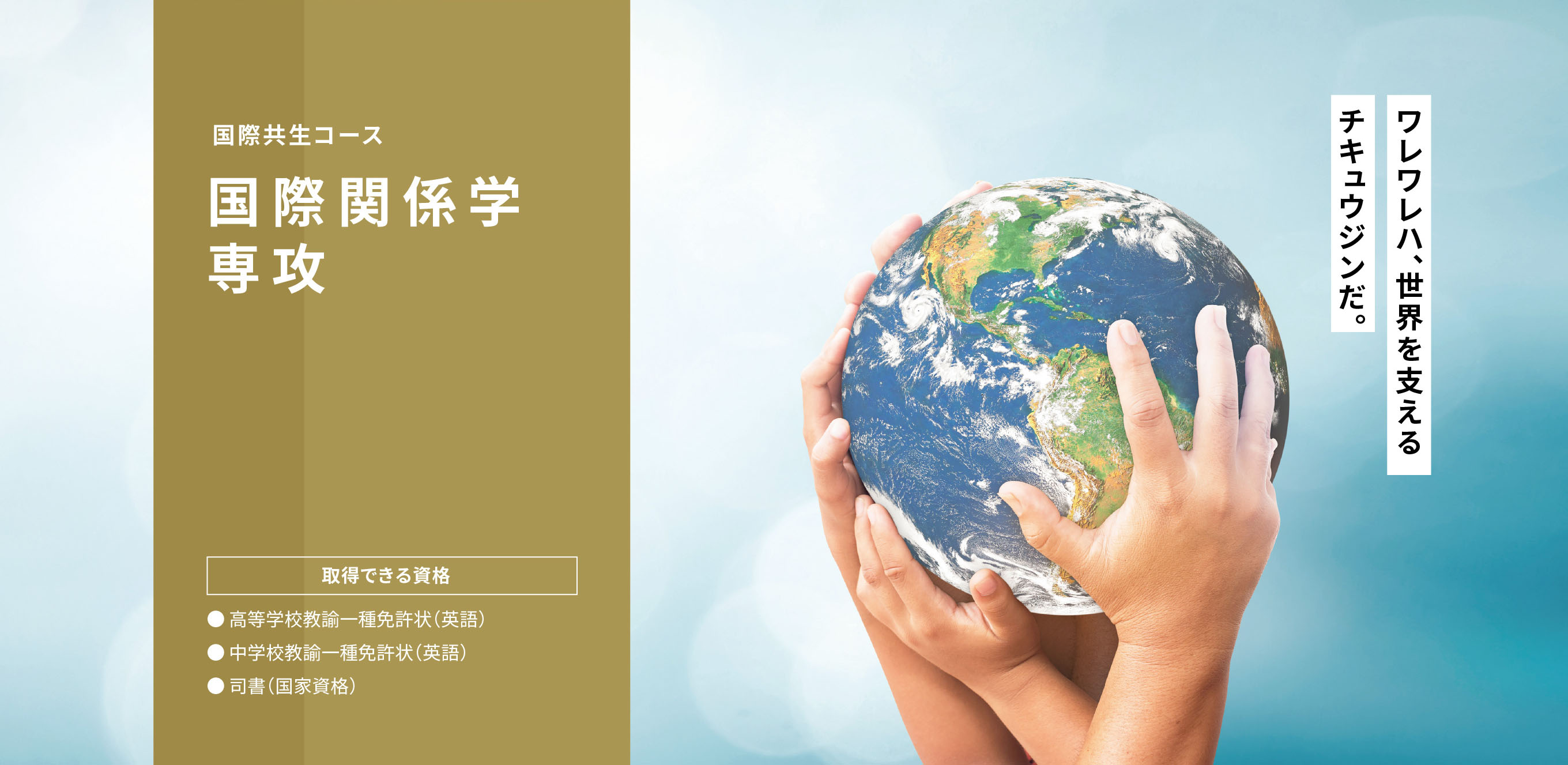

Using English,
Information from around the world
For the savvy international person.
By learning about and thinking about what is happening in the world and Japan's position, students will acquire the ability to look at the world objectively. First, students will work on improving their English skills to analyze information, and then learn about the world from a global perspective. We aim to produce people who can play an active role on the world stage.
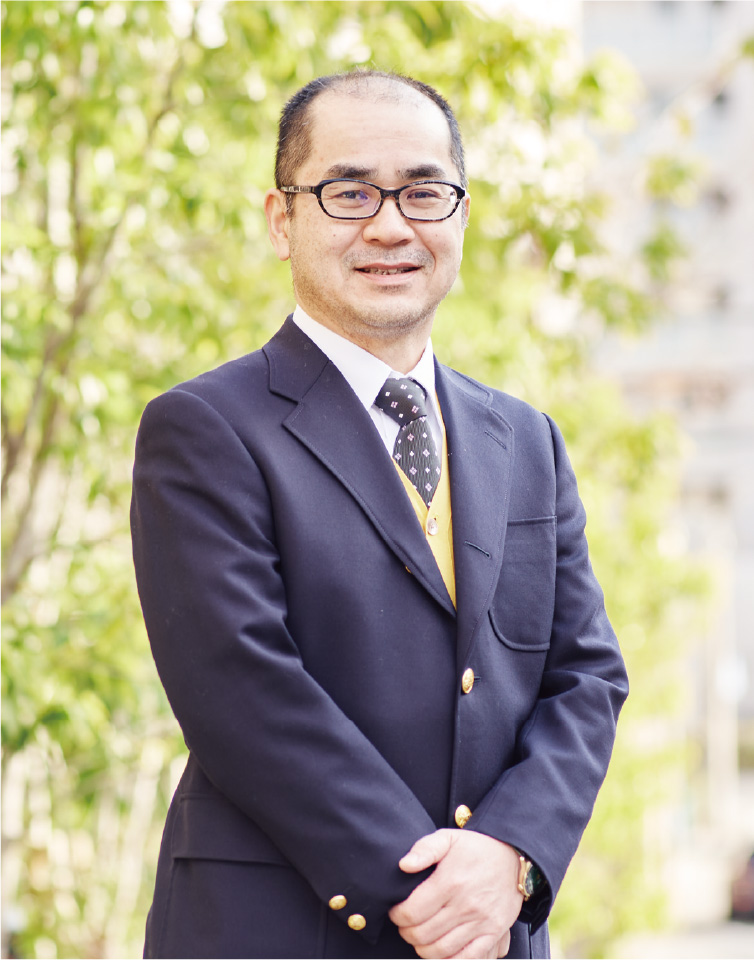
From one person's voice and actions,
It can change the world.
The appeal of this major is meeting people. Visit the offices of international NGOs and experience the attitude of people who are putting their lives on the line in developing countries. Listen to foreign workers talk. Are you interested in contributing to society, but feel embarrassed to say it out loud? Feel guilty about discussing environmental issues even though you use plastic straws? That's okay. Learning in this major allows you to realize your own powerlessness while unearthing your potential power to "change the world."Shinji SakamotoAssociate Professor Master of Arts
Key points for studying this major
-
- 1International relations and ethnic issues
Learn historically. - Students will learn about why international conflicts and disputes continue to occur and where Japan stands on these issues, and by exchanging opinions with other students, they will develop the ability to learn from differences in thinking.
- 1International relations and ethnic issues
-
- 2From the perspective of a global citizen,
International exchange and
Learn about aid work. - Students will learn not only about government-to-government relations, but also about the activities of private organizations such as NGOs that value connections between citizens and foster international cooperative relationships.
- 2From the perspective of a global citizen,
-
- 3Learn about Japanese culture in English.
- We will hone your English skills, which will also be useful for international contributions. We also offer courses on Japan in English, to nurture international citizens who can connect Japan with the world.
Four-year learning process
-
- First grade
- You will learn basic techniques to discover your own country and culture by using other cultures as a mirror.
-
- Second Year
- Students will take up cases related to international relations and conduct exercises in interpreting information from the media.
-
- Third grade
- We will conduct a debate exercise in which each participant will assume the role of a representative of a social group with different interests.
-
- 4th grade
- Students will compile the results of their studies in this department into a paper and give a research presentation.


My experience studying abroad in Senegal
It helped me grow a lot.
I have a strong interest in international issues, so I went to Otemae University to study International Relations. I was influenced by my studies in major subjects such as career design, overseas volunteering, and overseas aid technology, but the best experience of my student life was studying abroad in Senegal. Although it was an off-campus activity, I believe that my one year of volunteer work in Senegal has led to my current growth. Professor Sakamoto, my seminar teacher, who supported me in studying abroad, was also a big factor. During my study abroad, we had an interview once a month and he gave me a lot of advice on working locally. His advice, "What you do now will definitely come in handy, so just try anything, even if you are prepared to fail," is a piece of advice I treasure.
Yao ShinMr. Miss.
Graduated from Kobunen Girls' High School, Osaka Prefecture
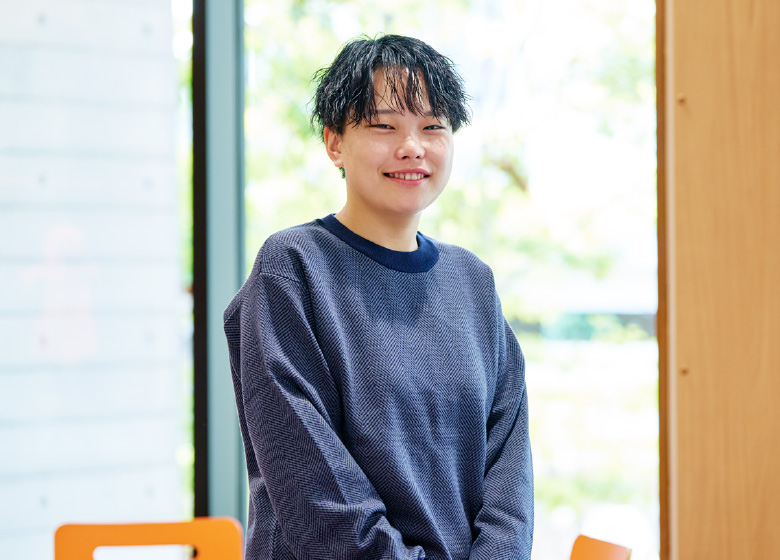

Pick Up Classes
By research topic
- ● The gap between the concept of poverty and reality
- ● The advanced role of men in childcare in Northern Europe
- ● Current status and results of girls' education in developing countries
- ● The nature of job hunting among East Asian university students
- ● Gender issues in Japan compared with Europe and the United States
International Exchange and Cooperation Student Staff
"Student Group Team Colors"
More information here!
Pick up here!
List of majors availableMajor subjects
Course names have been updated to make them easier to understand
- Japanese Studies and Asian Studies Course
- International Coexistence Course

